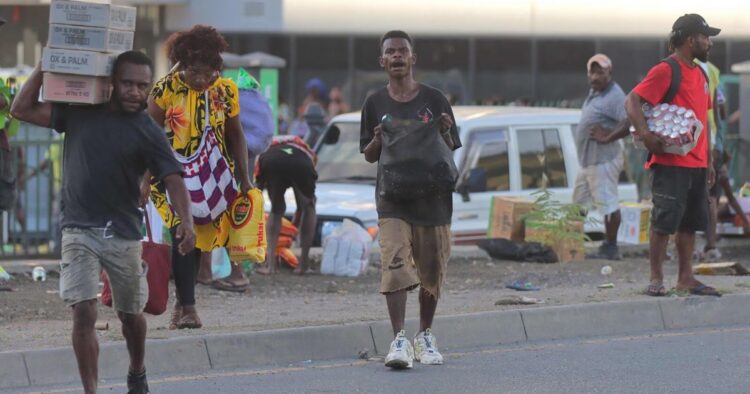Papua New Guinea’s Prime Minister, James Marape, declared a state of emergency on Thursday after violent riots claimed the lives of 16 people in the Pacific island nation. The unrest erupted from a police and public sector protest over a pay cut attributed to an administrative glitch. The capital, Port Moresby, witnessed thousands of people taking to the streets, looting, and causing chaos, leading to nine deaths, while seven were reported in Lae, a northern city known for gold and copper mining.
In response to the escalating situation, Prime Minister Marape took decisive action, suspending key officials, including the chief of police and top bureaucrats in the finance and treasury departments. He announced a government review to determine the cause of the riots, emphasizing the need to secure democracy and the rule of law. Marape acknowledged evidence of organized rioting, prompting a call for military support, with 1,000 personnel on standby to prevent further unrest.
While violence subsided in the capital on Thursday with additional police reinforcements, tensions remained high. The United States embassy in Port Moresby reported a return of police to work but cautioned that the situation could change rapidly. Reports of violence in various parts of the country heightened concerns.
Chinese citizens also faced repercussions, with several injured and Chinese-owned stores subjected to vandalism and looting. The Chinese embassy confirmed the incidents, highlighting the impact on their nationals. Australian Prime Minister Anthony Albanese expressed concern, stating that the Australian high commission was monitoring the situation. However, no requests for assistance had been received from Papua New Guinea at that time.
Papua New Guinea has grappled with a surge in violent crime, and Marape has emphasized the need for enhanced security to attract foreign investment in the country’s valuable gold and copper resources. The recent police strike, triggered by a pay cut, underscored the challenges faced by law enforcement. The government moved quickly to deny social media rumors about new taxes imposed on police, promising to rectify any administrative errors causing the pay shortfall.
As the situation unfolds, the international community watches closely, with concerns about potential implications on stability and security in the region. The government’s efforts to address the root causes of the unrest and restore order will play a crucial role in determining the path forward for Papua New Guinea.

















Comments